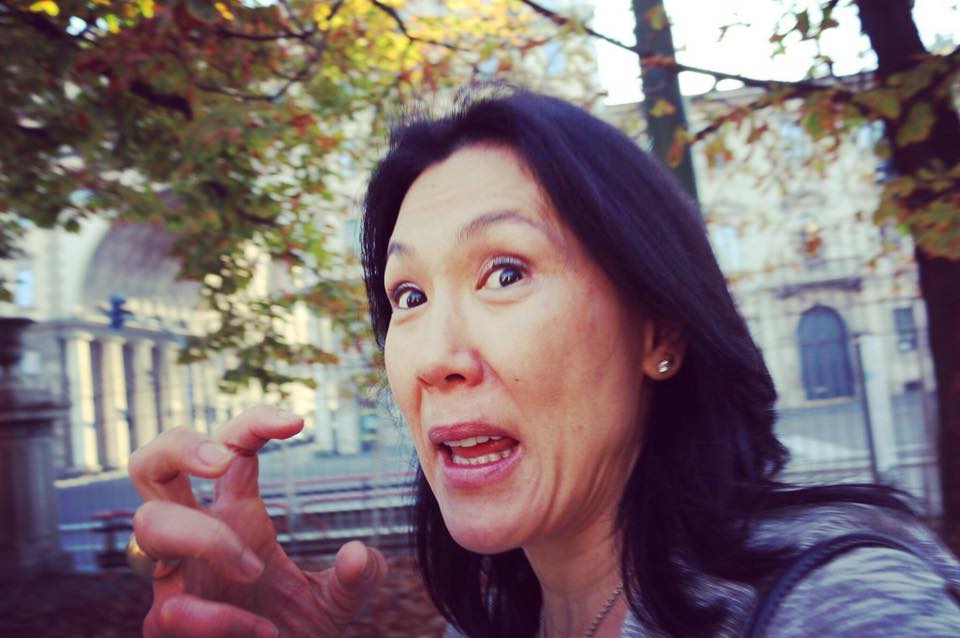Know What You Want and Why It’s Important for Global Nomads

By finding out what we want and learning how to ask for it, global nomads can create drive and purpose during transition, adaptation and everyday life, in any destination.
It seems that everyone wants more – more money, more education, more time. Apparently, the only thing most of us don’t want is what we already have.
In modern society, global citizens are so overwhelmed with their day-to-day life activities that seeing into the future is unthinkable. Everyone has bills to pay, families to care for, and projects to start and hopefully finish. Add to the mixture a career and, in some cases, raising kids, and it’s indeed a challenge to consider what we really want.
Like so many before us, and so many still to come, individuals in the position to chose what they want from live, often have no clarity and instead live reacting to life events.
Being able to see into the future is one of the most impressive features of the human brain. For a long time, we even thought that our specie was the only one with this special ability. However, researchers have found out recently that ravens and apes are also able to plan and delay satisfaction for future rewards.
Culture is another piece of the complex jigsaw of knowing what we want. Take for instance wanting more financial success. I have been observing my own attitudes and thoughts towards money, and how they are based on my culture and social interactions.
In some cultures, having “too” much money is undesirable while in other cultures, financial success is just part of a well balance life.
How well are you using your innate ability of seeing in the future to create your life?
In a scale of 1-10, one being the least and ten the most, how satisfied are you in the areas listed below?
– Family
– Personal relationships
– Significant other
– Career/Volunteering
– Financial
– Health/Aging
– Spiritual
– Home Environment
– Leisure & Fun
If you took the time to rate the nine areas above, you may be unsurprised by the areas you are doing well. It’s interesting to observe that the areas you are satisfied with, tend to be the same ones your attention and efforts are focused.
Know that you want
What would you attempt to do if you knew you could not fail? If time/money/energy were not issues what would you want to do or have? If you had unlimited amounts of funds, what would you do?
It’s ok to dream here and be creative.
Expect it to take some time to start to know what your want, specially, if you spent years thinking and providing for the needs of others, and accepting other people’s agendas as your own.
Don’t know what you want? Don’t wait to find out. Fake it!
Yes, fake it. A made up purpose is better than no purpose at all. Until you find out what you really want, use your values and internal desires to create something to motivate you to move forward.
Make it personal.
A friend of mine had to live in a hotel room for two months while relocating to India. She decided to occupy herself by writing and eating lunch at different restaurants, everyday. She had and enjoyable time and now, living in a proper home, she is working on her first book!
The moral of this short story is that this friend did not wait to find out what she “really” wanted to do during her time in India. She created a temporary purpose and took actions.
Ask for what you want.
This may be hard in the beginning.
Here in the United States I hear frequently, “I don’t care.” “I don’t mind.” And the teenagers’ favorite word – “whatever.”
Jack Canfield, the author of “Chicken Soap for the Soul” and “Success Principles” shares a personal story about practicing choosing rather than not caring.
Canfield while attending a seminar that greatly impacted his life, learned that he could ask for what he wanted. Here are his words – “As all attendees, including myself, entered the room, I noticed that somebody had put a spiral notebook on everyone’s chair. Some were blue, some were yellow, and others were red. The one on my chair was yellow. I remember thinking – I hate yellow. I wish I had the blue one.
Then the event speaker said something that changed my life, forever: If you don’t like the color of the notebook on your chair, trade with someone else and get the one you want. You deserve to have in life everything exactly the way you want it.”
Stating your preference, your wanting, is different than demanding that people attend to your desires.
Asking for what you want creates clear communication and personal authenticity. Of course, by asking you are open to receive a YES, or a NO answer.
Either way, you start practicing asking for what you want.
Here are a few small ways to begin working on this skill.
– Ask for the colors you like.
– The type of coffee or tea you prefer?
– Are you a night owl or an early riser?
– Want a discount? Ask for it!
– What’s your favorite pizza topping?
Whenever possible, state your preference. Just ask, politely, for what you want. Again, without demanding.
By gaining clarity of what it is that you want, and learning how to ask for it, even if you have to fake it in the beginning, you too can start on a successful journey of seeing into your future, even if your present isn’t clear yet.
“When you know what you want and you want it badly enough, you’ll find ways to get it.” Jim Rohn



